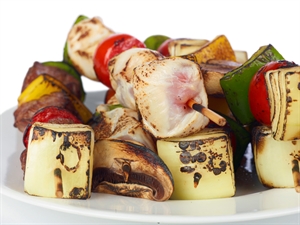Most travellers can expect to experience a mild stomach upset during their trip, particularly in the first week. These gastro-intestinal (GI) problems are often caused by a change in diet and routine and ‘meeting’ some new microorganisms. Most cases don’t need any treatment and will clear up on their own as long as you stay hydrated.
However – there are a few more serious infections that you can pick up from food. These include campylobacter, norovirus, dysentery and listeria. Typhoid and hepatitis A and E can also be contracted from food.
These illnesses can take you out of action for days or even weeks, with symptoms such as vomiting, diarrhoea and painful stomach cramps. As you can imagine, they can really spoil a holiday or business trip. Some, such as typhoid, can result in serious illness or even death. But there are few steps you can take to reduce your risk of getting ill from food.
1. Get vaccinated
You can dramatically reduce your chances of contracting typhoid and hepatitis A by getting vaccinated against these diseases. The travel health nurses at Global Travel Clinics can help you out with these and other shots and can give you advice on food safety abroad.
2. Watch your personal hygiene
Typhoid and hep A are both spread via the faecal-oral route – which means they are contracted by accidentally ingesting tiny fragments of an infected person’s feces. Norovirus is spread by infected vomit particles. You can reduce the chances of ingesting such particles if you wash your hands thoroughly after using the toilet. You should also wash your hands before eating or handling food. NHS Choices has some handwashing tips, including videos.
3. Go for reliable-looking restaurants
Your risk of contracting food-borne diseases is much decreased if you opt for high-end restaurants. Look for clean tables and eating spaces, and for staff who seem well educated about food hygiene. If you are in doubt, you could give the plates, glasses and cutlery a quick once-over with an alcohol wipe. Or you may wish to carry your own eating utensils in a cutlery roll. And always wash your hands before eating.
4. Fresh and hot
Bacteria such as listeria can grow in food that is kept warm, so it is best to opt for hot, freshly cooked food rather than dishes that have been sitting around on a buffet table.
5. Cook it, peel it, forget it
Organisms that cause GI illnesses can be found on many vegetables but many are destroyed by cooking. This means that raw produce may be a source of infection. The old advice “cook it, peel it or forget it” is helpful. Generally, fruit that you can peel yourself is fine, whereas berries may not be. Cooked veggies are safe, but salads (including herbs) are not because it is very difficult to wash them properly.
6. Be wary about eating…
Cheese, ice cream and other unpasteurised dairy products are best avoided, but will probably be safe if purchased from larger shops.
You should take local advice about seafood as, depending on location, it can cause illness at certain times of year.
When you get home
If you develop any worrying GI symptoms on your return, speak to your doctor and let them know where you’ve been.


Book Online